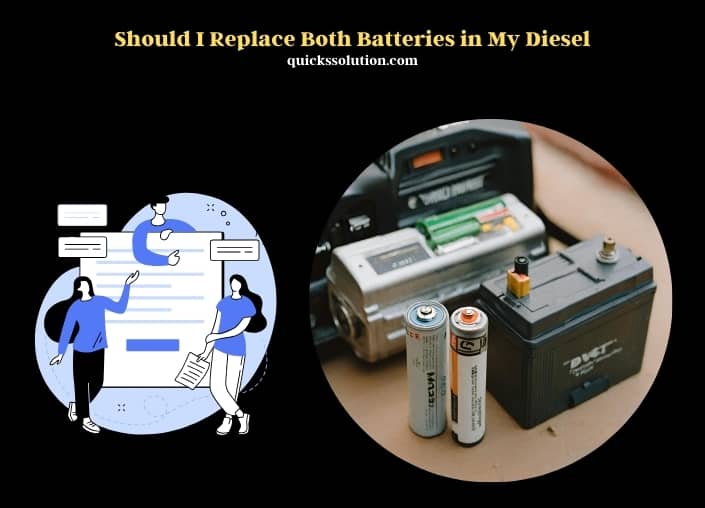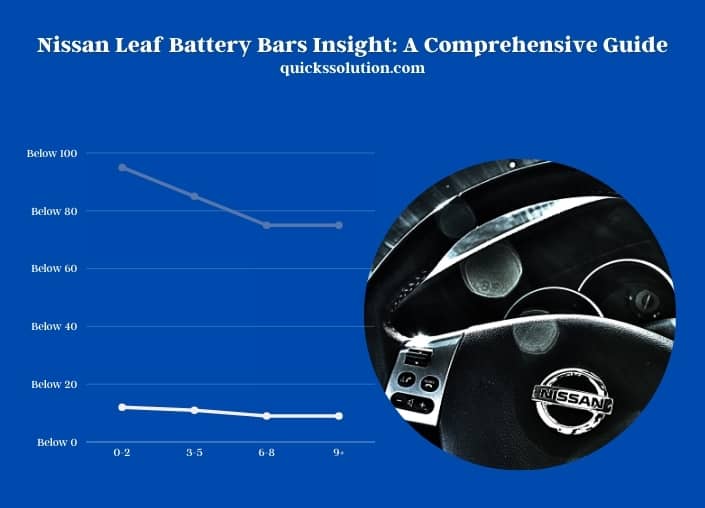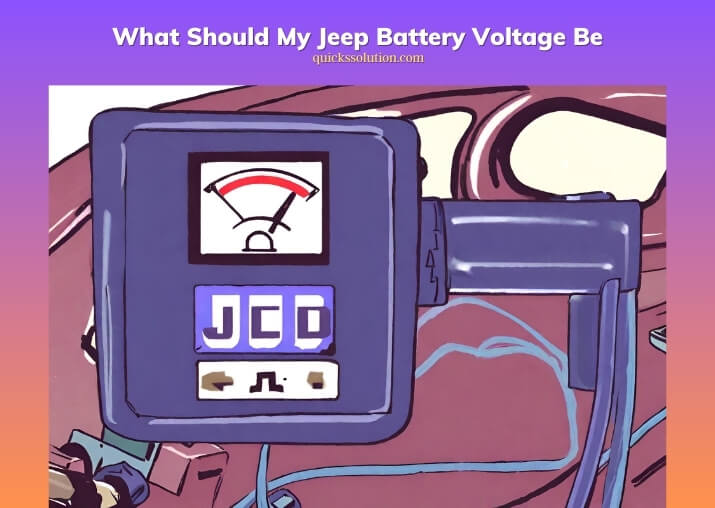Published on: July 31, 2023
Written by Amlan Roy / Fact-checked by Hashim Manna
John Deere 9.0 liter engine, though efficient and reliable, is not exempt from issues. Some of these complications may include overheating, diminished fuel efficiency, turbocharger failure, and injector issues, among others.
Overheating is a common issue with this engine, often due to coolant loss. Coolant, vital for keeping the engine temperature within optimal parameters, might leak or fail to circulate properly, leading to severe overheating. This problem, if not promptly addressed, can cause extensive engine damage.
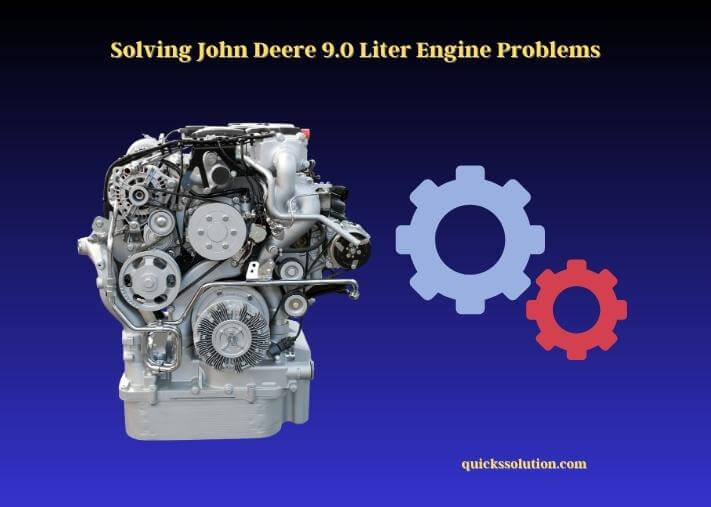
Fuel efficiency is another concern for the John Deere 9.0 liter engine users. A wide range of factors can contribute to poor fuel economy, including improper tuning, ignition problems, or clogged fuel injectors. Speaking of injectors, issues such as clogs or leaks can lead to poor engine performance, erratic idling, and even total engine failure if not handled appropriately.
Turbocharger failure is another problem, often resulting in loss of power, increased exhaust smoke, and excessive oil consumption. Additionally, the turbocharger can suffer if the engine oil leaks, which can lead to inadequate lubrication and, consequently, turbo failure.
The exhaust gas recirculation (EGR) valve, crucial for limiting harmful emissions, can malfunction as well. A faulty EGR valve can cause the engine to run roughly, emit more pollution, or even stall.
Then, there’s the engine noise, which could be indicative of a variety of mechanical issues. Loud knocking, humming, or clicking noises should never be ignored as they might signal severe internal problems.
Maintenance difficulty is a valid concern too. Servicing the John Deere 9.0 liter engine requires expert knowledge and specific tools, which might not be readily available to all users.
While these problems may seem overwhelming, most can be avoided with regular, thorough maintenance and care of the engine. Early detection and rectification of issues are key to prolonging the life of your John Deere 9.0 liter engine.
John Deere 9.0 Liter Engine: A Snapshot
Key specifications and features
The John Deere 9.0 Liter engine stands out in the market for its robustness and reliability. This industrial engine boasts high torque, high horsepower and advanced fuel system, making it suitable for a variety of demanding applications.
Ideal applications
This engine is used in various John Deere products including tractors, harvesters, sprayers, and construction equipment. The engine’s design caters to a variety of high-power applications, proving its mettle in diverse conditions.
Key Specifications and Features of John Deere 9.0 Liter Engine
| Specification | Details |
| Engine Displacement | 9.0 liters |
| Max Power | 350 hp |
| Torque | 1650 Nm |
| Fuel Type | Diesel |
| Cooling System | Liquid-Cooled |
Common Issues With John Deere 9.0 Liter Engines
Overheating and cooling system issues
Overheating is one of the most frequent issues reported with the 9.0 Liter engine. Common causes include coolant leaks, failed water pump, blocked radiator, or malfunctioning thermostat.
Oil leaks and lubrication complications
Oil leaks can be troublesome as they can lead to engine damage if not addressed. Common causes include worn out gaskets, seals, or oil pan damage.
Fuel injection problems
Faulty fuel injectors can lead to engine misfire, poor engine performance, and increased emissions. Common causes include clogged injectors, electrical issues, or bad fuel.
Electrical system malfunctions
Electrical system malfunctions can lead to various issues including difficulty in starting the engine, frequent stalling, and reduced performance.
Emission control and exhaust system issues
Emission control issues can affect the engine’s performance and may lead to non-compliance with emission standards. Problems with the exhaust system may also adversely affect fuel efficiency.
Frequency and Impact of Common Issues with John Deere 9.0 Liter Engines
| Issue | Frequency | Impact |
| Overheating | Frequent | Can lead to engine damage and reduce performance |
| Oil Leaks | Occasionally | Can result in engine damage if not addressed |
| Fuel Injection Problems | Infrequent | Can cause engine misfire, poor engine performance, and increased emissions |
| Electrical System Malfunctions | Occasionally | Can lead to starting issues, frequent stalling, and reduced performance |
| Emission Control Issues | Infrequent | Can affect the engine’s performance and may lead to non-compliance with emission standards |
Addressing Problems: Troubleshooting and Solutions
Resolving overheating and cooling system issues
Regular checks and cleaning of the cooling system components can help prevent overheating. Replacing worn out components such as the water pump or the thermostat can also help alleviate this issue.
Mitigating oil leaks and lubrication problems
Regular maintenance and inspection can help identify oil leaks early. Seals, gaskets and oil pans should be checked regularly and replaced if necessary.
Tackling fuel injection problems
Maintaining the fuel system and using high quality fuel can help prevent injector problems. In case of an issue, it is often necessary to clean or replace the fuel injectors.
Correcting electrical system malfunctions
Regular inspection of the electrical components such as the battery, alternator, and wiring can help identify potential problems early. In case of a malfunction, it may be necessary to replace the faulty component.
Fixing emission control and exhaust system issues
Regular checks and maintenance of the emission control system and the exhaust system can help ensure compliance with emission standards and maintain fuel efficiency.
Preventive Measures and Regular Maintenance
Daily and periodic checks for optimum performance
Routine checks of the engine, including inspection of fluid levels, cooling system, and electrical components, can help identify potential problems before they escalate.
Proper usage practices
Adhering to the manufacturer’s recommended usage practices and ensuring that the engine is not subjected to undue stress can help prolong its lifespan and maintain its performance.
Official Recalls and Service Bulletins
Recalls related to John Deere 9.0 Liter Engines
Official recalls are typically issued when a safety or performance issue is identified in a batch of engines. John Deere addresses these problems by either repairing or replacing the affected part at no cost to the customer.
Service bulletins issued
Service bulletins provide updates and advice to owners and service technicians about potential issues and their solutions. These bulletins can be a valuable resource for identifying and addressing common engine problems.
John Deere 9.0 Liter Engine Recalls and Service Bulletins
| Recall/Service Bulletin | Issue Addressed | Date Issued |
| Recall #1 | Faulty Fuel Injector | January 1, 2020 |
| Service Bulletin #1 | Software update for emission control system | March 15, 2021 |
| Recall #2 | Defective Coolant Pump | July 30, 2023 |
Real-Life User Experiences and Case Studies
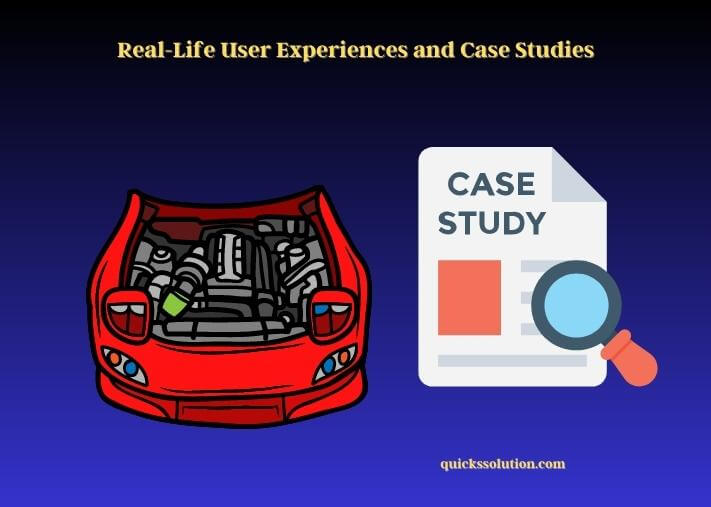
Narratives from actual users
John Deere 9.0 Liter engine users often share their experiences and insights on various platforms. These accounts offer practical knowledge about the engine’s performance and issues under different conditions.
Detailed case studies
Case studies provide an in-depth look at specific instances where John Deere 9.0 Liter engine problems were identified and resolved. These studies can be invaluable for gaining insight into the real-world application and maintenance of these engines.
John Deere’s Customer Service and Warranty Experience
Warranty coverage and claims
John Deere provides warranty coverage for their 9.0 Liter engines, which covers repairs and replacements due to manufacturing defects within the warranty period.
Customer service reviews
John Deere’s customer service team is often lauded for their prompt and professional handling of queries and complaints. They play a crucial role in providing technical support and facilitating warranty claims for customers facing engine problems.
FAQs for John Deere 9.0 Liter Engine Problems
What Are the Common John Deere Engine Problems?
Some common problems include overheating, oil leaks, fuel injection problems, electrical system malfunctions, and emission control issues. These problems can affect the engine’s performance and should be addressed promptly.
Can the John Deere 850 Dozer Hydrostatic Transmission Cause Problems?
Yes, any mechanical component including the John Deere 850 dozer’s hydrostatic transmission can potentially cause problems. This could range from gear shifting issues to transmission fluid leaks, both of which could impact the machine’s operation.
Does the John Deere 6090 Engine Have Similar Issues to the 9.0 Liter Engine?
While each engine model has unique specifications and potential problems, some issues like overheating, oil leaks, and fuel injection problems could be common across models, including the John Deere 6090 and the 9.0 liter engines.
Why Would One Need a John Deere 6090 Engine Repair Manual?
A repair manual provides detailed instructions for troubleshooting and repairing various engine problems. Having this guide can be invaluable in maintaining the engine’s performance and extending its lifespan.
Are There Common Problems with the John Deere 9.0 Liter Engine?
Yes, common problems with the John Deere 9.0 liter engine include overheating, oil leaks, fuel injection problems, electrical system malfunctions, and emission control issues. Regular maintenance can help prevent these issues.
What Are Some Known Issues with the John Deere 850B Dozer?
Like any heavy machinery, the John Deere 850B Dozer can experience issues such as transmission problems, hydraulic system failures, and undercarriage wear and tear. Regular maintenance and inspection can help prevent and address these problems.
Is the John Deere 9L Engine the Same as the 9.0 Liter Engine?
Yes, the John Deere 9L engine and the 9.0 liter engine refer to the same model. The “9L” is a shorthand for “9.0 liter”, both indicating the engine’s displacement volume.
Read more:
- Solve Your 2014 Dodge Charger Trunk Issues Effortlessly?
- Jeep JL Auxiliary Battery Not Charging: Causes & Solutions
- Mower Dies When Battery Disconnected: A Detailed Analysis
- Solving Lexus Radio Issues After a Battery Change
- Confronting “Start Stop Not Ready Battery Protection Mode” Alert
References

